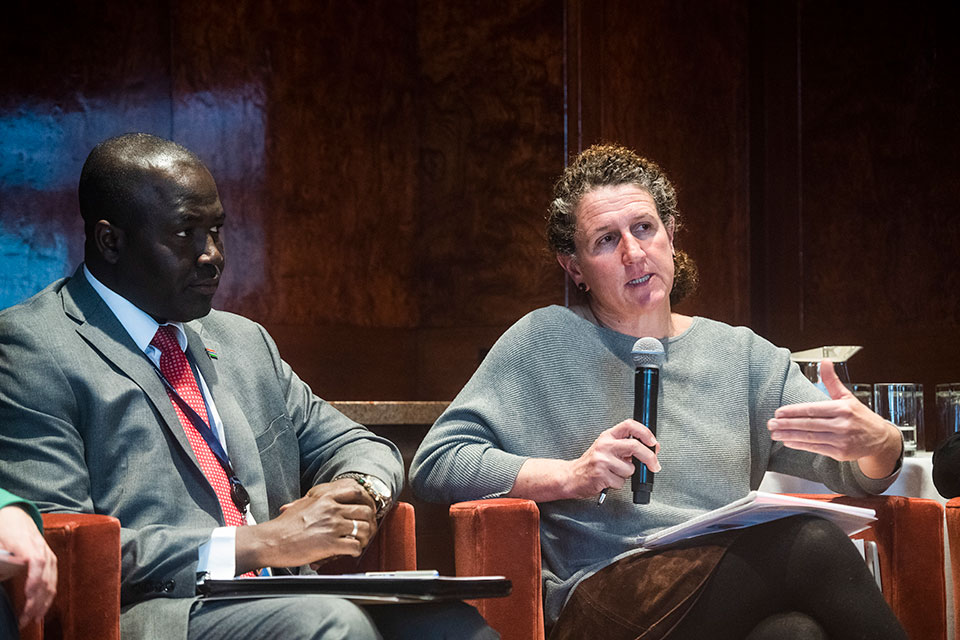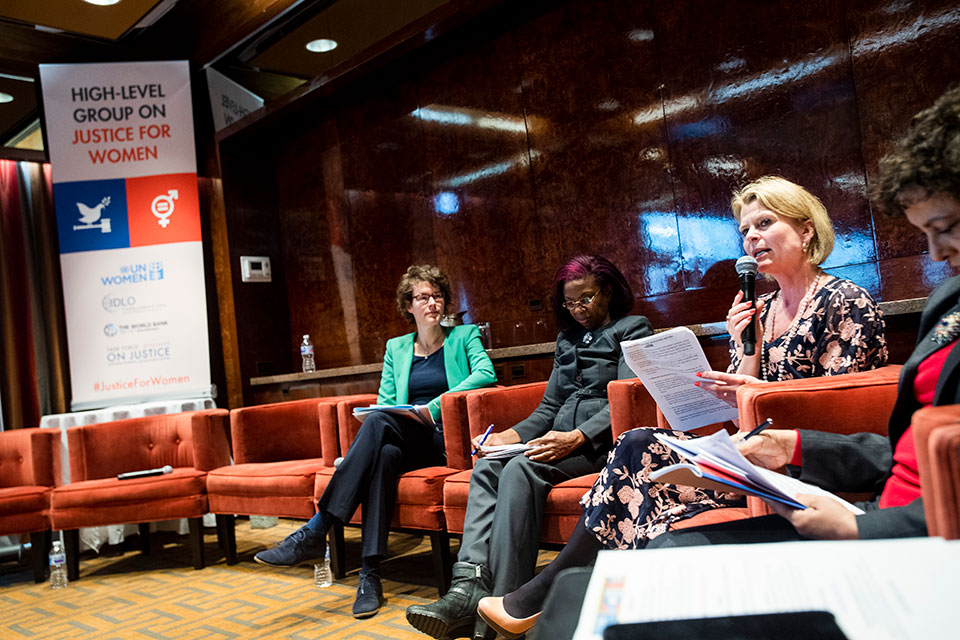New global report calls for urgent measures to close justice gap for women
Date:

The High-level Group on Justice for Women (HLG), comprising of justice, human rights and gender experts from different parts of the world, launched a pathbreaking global report on Justice for Women on 13 March, at a side event on the margins of the 63rd session of the UN Commission on the Status of Women in New York.
"#JusticeForWomen means justice for everyone." -- Lang Yabou, Permanent Representative of Gambia to the UN. #CSW63 pic.twitter.com/JaUR0vq3GO
— United Nations CSW (@UN_CSW) March 13, 2019
The report, authored by Jeni Klugman, a fellow of the Kennedy School of Government’s Women in Public Policy Program at Harvard University and Managing Director, Georgetown Institute for Women Peace and Security, was developed as part of ongoing work of the Task Force on Justice, established by the Pathfinders for Peaceful, Just and Inclusive Societies. It documents and explains the justice gap for women and girls; makes the case for investment in the justice sector in a gender-responsive manner; proposes strategies for scaling up existing interventions; and articulates an eight-point call to action to close the existing gender justice gap.
The event was hosted by the co-conveners of the High-level Group—UN Women, the International Development Law Organization (IDLO), The World Bank and the Task Force on Justice.
“From women held without fair trial, to women toiling in their homes, in factories, in the fields, the gap between what women demand and need, and what they receive is enormous,” said IDLO’s Director-General Irene Khan.
Sandie Okoro, Senior Vice-President and General Counsel of The World Bank Group reasoned that, “gender equality is not an abstract concept that demands innovative thinking. It is, and must be, a fundamental right by which societies are built and economies are made to thrive.”
The Justice for Women report will feed into the High-level Political Forum, the main United Nations platform for follow-up and review of the 2030 Agenda for Sustainable Development, convening in July 2019.

“UN Women is up to the task and is ready to walk though this journey with you,” said Åsa Regnér, Deputy Executive Director of UN Women. “Together, we will make a significant difference and come 2020, 2025 and 2030, we shall have more achievements and results to share during these periodic reviews of the Beijing Declaration and Platform for Action”.
"Gender equality is not an abstract construct, it’s a fundamental right. It's also a critical component of economic growth." -- @FCDaverio of @WorldBank.#CSW63 #JusticeForWomen pic.twitter.com/zLr9UlzPCJ
— United Nations CSW (@UN_CSW) March 13, 2019
Moderated by Maaike de Langen, Head of Research for the Task Force on Justice, New York University Centre on International Cooperation, the lively discussion among over 100 participants from different regions resulted in the unequivocal call for concrete action.
Demonstrating that change is possible, The Gambia, represented by Lang Yabou, Permanent Representative of Gambia to the UN, announced: “As a member of the High-level Group, our legal reform efforts will be boosted by an ongoing overhaul of our justice institutions. A Sexual Assault and Victim Support Unit was established in 2018 to enhance the ability of the Ministry of Justice to effectively prosecute cases of sexual assault.”
Other members of the panel included Hilary Gbedemah, Chairperson of the CEDAW Committee; Maria Fernanda Rodriguez, Under-Secretary for Access to Justice and Human Rights, Argentina; Mette Gongrijp, Director Social Development and Ambassador, Women’s Rights and Gender Equality, Ministry of Foreign Affairs of the Netherlands; Rangita da Silva, Associate Dean of International Affairs, University of Pennsylvania Law School; Amelia Kinahoi-Siamomua, Head of Gender Section, Commonwealth Secretariat and AWID’s lead on Economic Justice, Inna Michaeli.